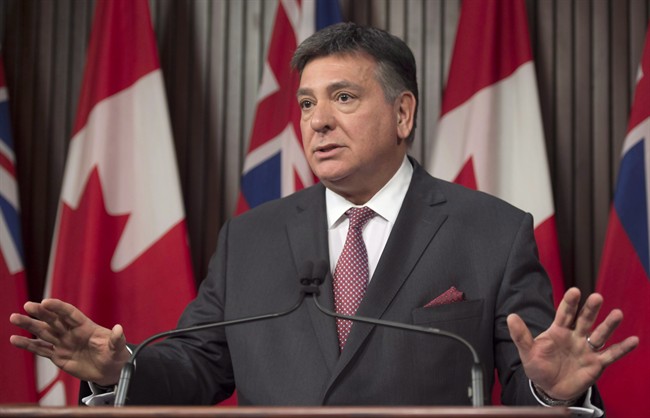The Ontario government has announced a $20-million boost for respite care funding in 2017 to support caregivers of people at home.

The announcement was made by Ontario’s Minister of Finance Charles Sousa and Minister of Health Dr. Eric Hoskins at SPRINT Senior Care in Toronto on Tuesday. It comes in advance of the government’s budget, to be announced on Thursday.
A family caregiver is defined by the government as “people who provide unpaid care for a family member or a friend at home, including seniors, people living with dementia or those with other complex health needs,” according to a news release. The care often applies to Ontarians living with a physical or cognitive condition, injury or chronic life-limiting illness.
“Informal caregivers, like family members and friends, provide invaluable support for their loved ones every day, but we know how stressful it can be,” Dr. Hoskins said in a statement released Tuesday.
“We want to ensure caregivers are supported, able to take rests from providing care to their loved ones and have the opportunity to thrive.”
The funding will cover about 1.2 million hours of respite services for caregivers so that they can schedule breaks for rest, family commitments or other priorities.
A new Ontario Caregiver Tax Credit in 2017 will replace the current caregiver and infirm dependent tax credits. As a new, non-refundable provincial tax credit, it will streamline and extend support for people caring for infirm relatives.
The province also announced additional education and training programs for unpaid caregivers on how to provide care to loved ones at home in ways that work for them, including online, in group settings, and in a variety of languages. A new organization will be launched to help coordinate supports and resources across the province.
The need for improved respite care continues to grow with an aging population. A statistic from the province states that nearly half of the estimated 214,000 Ontarians living with Alzheimer’s or other dementias have caregivers who report feeling distressed.
With the latest funding, the government will have committed $120 million for respite care over the past three years.
“Caring for a loved one at the most difficult point in their life can be physically and mentally challenging,” Sousa said in a statement.
“Through respite care funding, caregivers can receive personal support services or nursing at home, ensuring quality care while they take a moment to relax and recharge.”








Comments